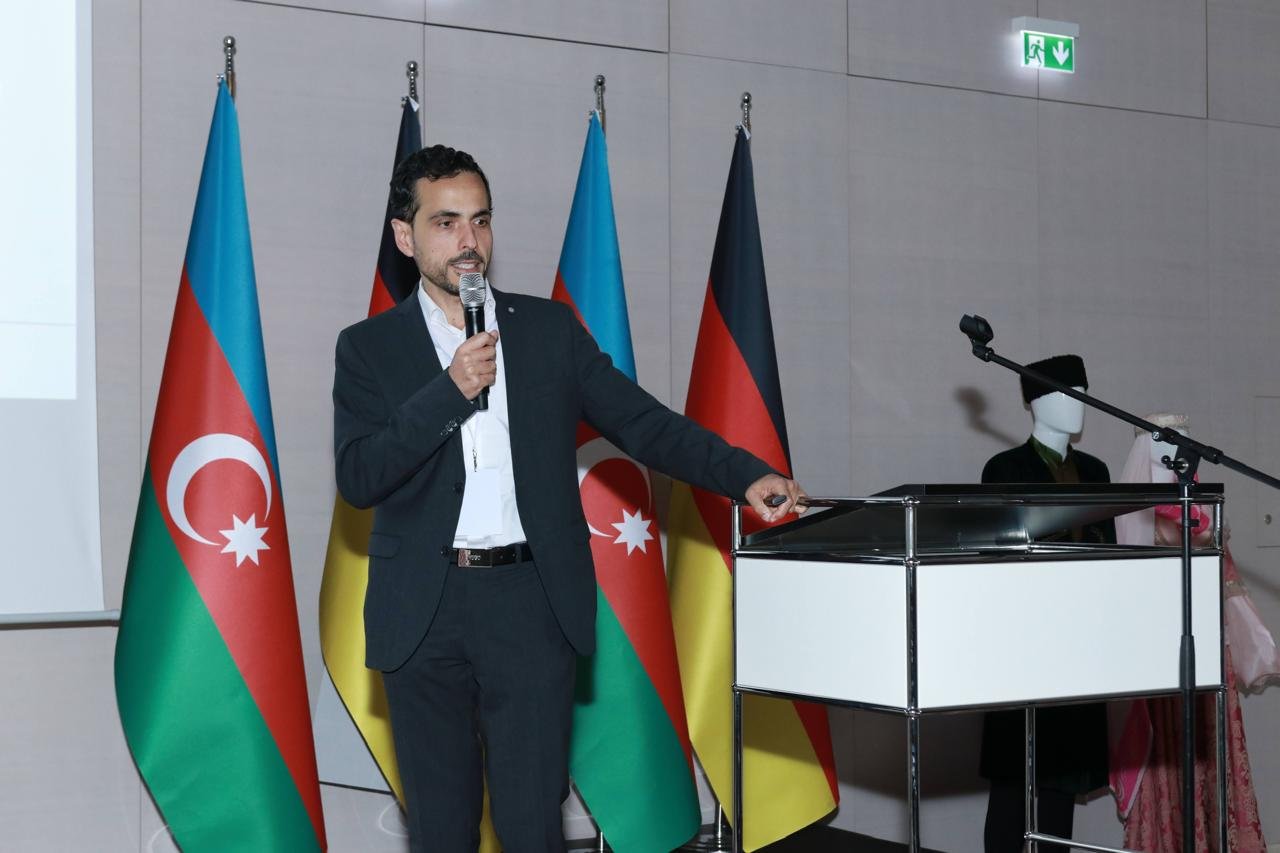
Germany’s medical system provides platform for ambitious professionals - Azerbaijani neurosurgeon Interview
Germany offers significant opportunities for those who are committed to their goals, said Professor Ramazan Cabbarli, the head of the Neurosurgery Department at Essen University Hospital, CE Report informs.
Professor Cabbarli shared insights into his career and personal journey over the past two decades.
Relocating from Azerbaijan to Germany in 2005 was a strategic move for Cabbarli, who sought to pursue both clinical practice and scientific research in the highly technological field of neurosurgery. He explained, “I knew that to engage in meaningful scientific work, I would need access to modern technology, which was not fully available in Azerbaijan at the time.”
The decision to move to Germany was also influenced by a scholarship from the German Academic Exchange Program. “I had been learning English throughout school and wasn’t fluent in German, but the opportunity to conduct research at the University of Freiburg led me to pursue this path,” he recalled. What was initially planned as a one-year research opportunity evolved into a long-term commitment to Germany, as he was offered a full specialization and residency program.
Arriving in Germany with little to no connections, Cabbarli faced numerous challenges in adapting to a new country. “The first time I set foot in Western Europe was when I arrived in Germany,” he said. “The language barrier was significant, and without tools like Google Maps, navigating daily life was a challenge.”
The cultural differences between Germany and Azerbaijan were also notable, particularly when it came to social norms. Cabbarli observed, “The Azerbaijani mentality is closer to that of Southern European countries than to Germany's, but over time, I learned to adapt and navigate these differences.”
He highlighted the contrast between his work experiences in Azerbaijan and Germany. “In Azerbaijan, the work pace was more relaxed, and departments had more staff, which meant the workload was lighter. In Germany, however, the expectations are much higher, and the schedule is demanding.”
Despite the high-pressure environment, Cabbarli emphasized the importance of quality control in German medical culture. “In Germany, if a task is not done properly, it will eventually be discovered, which ensures a high standard of work.” He added, “The mentorship culture here ensures that experienced colleagues guide new employees, maintaining the integrity of medical practice.”
Having lived in Germany for 20 years, Cabbarli recognized the positive environment for foreigners who are willing to work hard and integrate. “Germany offers significant opportunities for those who are committed to their goals,” he said. “While I may never fully be considered a native German, the country has provided me with ample opportunities to grow both personally and professionally.”
Cabbarli stays connected to Azerbaijan and is encouraged by the country’s advancements, particularly in the medical sector. “The progress over the past 20 years is impressive. Azerbaijan’s medical field has seen significant improvements, with cutting-edge equipment and treatments now available in the country,” he said.
The professor hopes to contribute to this growth in the future. “I am proud of the medical advancements in Azerbaijan, and I would be honored to play a role in the country’s continued development,” he said. With new medical faculties being established and a focus on attracting foreign expertise, Cabbarli believes the future of Azerbaijani medicine looks bright.
As a neurosurgeon, Cabbarli’s schedule can be unpredictable, with emergency surgeries often requiring him to make quick decisions, even from home. “Neurosurgery is high-stakes and intense. There are times when I am called in the middle of the night to perform a critical operation,” he shared. Despite the demanding nature of the job, Cabbarli emphasized the importance of balancing work with rest to maintain long-term effectiveness.
“It’s crucial to find time to recharge, as the intensity of neurosurgery requires immense energy,” he concluded.
























